Chemistry
Sign up for our newsletter
We summarize the week's scientific breakthroughs every Thursday.
-
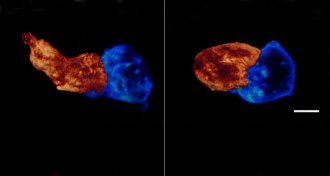 Tech
TechNew microscope gives clear view inside cells
By splitting beams of light, a new microscopy technique can capture activity inside a cell.
By Meghan Rosen -
 Chemistry
ChemistryCrystallography celebrates centennial
Dubbed the international year of crystallography, 2014 marks the centennial of X-ray diffraction.
By Beth Mole -
 Chemistry
ChemistryMicroscopy providing ‘window into the cell’ wins chemistry Nobel
Three scientists use fluorescence and lasers to see single molecules and other tiny objects.
By Beth Mole and Meghan Rosen -
 Tech
TechMicroscopy techniques win Nobel Prize in chemistry
The award goes to three scientists who developed fluorescence microscopy, which allows researchers to see single molecules just a billionth of a meter across.
-
 Chemistry
ChemistryLasers wrest oxygen from carbon dioxide
By zapping oxygen molecules off carbon dioxide, an experiment hints that Earth may have had breathable air long before the dawn of plants.
By Beth Mole -
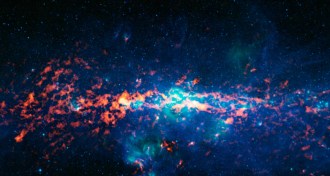 Chemistry
ChemistryInterstellar chemical resembles building blocks of life
A molecule detected in the space between stars resembles amino acids, suggesting those building blocks of life share a similar origin.
By Beth Mole -
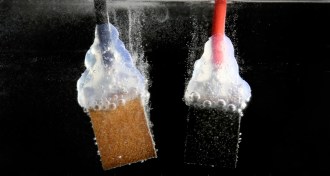 Tech
TechSolar cell powers water-to-hydrogen conversion
High efficiency could make perovskite solar cells useful for generating environmentally friendly fuel.
By Sam Lemonick -
 Tech
TechHydrogen made using sunlight, cheap materials
Photosynthesis-inspired fuel cell uses water to make hydrogen gas and could feature in next-generation cars.
By Sam Lemonick -
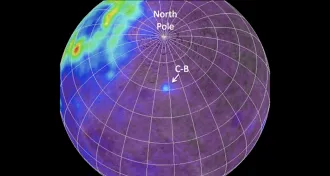 Planetary Science
Planetary ScienceMoon’s farside hints at violent volcanic explosions
The spread of the element thorium in the moon's Compton-Belkovich region suggests that silica volcanoes there once had violent explosions.
-
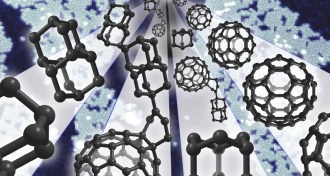 Materials Science
Materials ScienceBuckyballs, diamonds inspire new synthetic molecule
Hitching a hollow ball of carbon to a diamond-shaped lattice yields a useful piece of electrical circuitry.
-
 Chemistry
ChemistryLiquid salts break through armored bacteria on skin
Compounds called ionic liquids can penetrate bacterial biofilms on skin to deliver antibiotics to potentially life-threatening infections.
By Sam Lemonick -
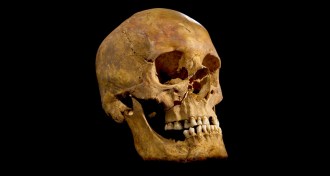 Anthropology
AnthropologyRichard III ate like a king before biting the dust
King Richard III’s brief reign included a sudden shift to eating fancy food and drink.
By Bruce Bower